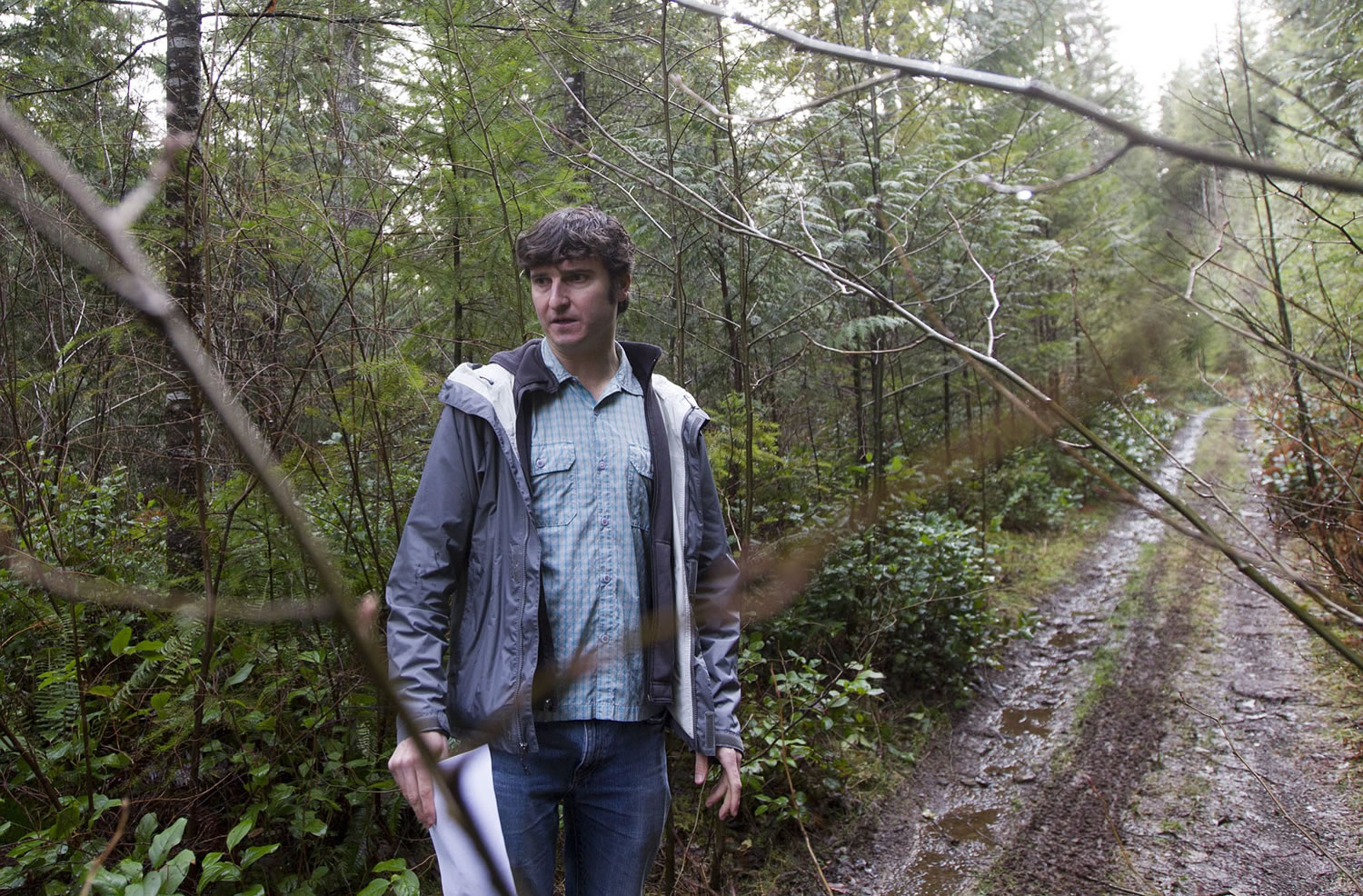It’s easy to see why the East Fork of the Lewis River watershed faces the threat of development, according to Dan Roix.
“It’s beautiful,” said Roix, standing on a footbridge over Rock Creek, a major tributary of the East Fork. “You can imagine people want to live here with a view of the creek. But at some point, habitat starts to get degraded.”
Columbia Land Trust recently completed the purchase of 51 acres of riparian forest around Rock Creek, aiming to protect habitat for steelhead and other wildlife. The project area includes 4,500 feet of shoreline along the creek itself, which meanders through Clark County’s Dole Valley area. Roix, the land trust’s conservation manager for the Portland-Vancouver region, said the acquisition happened some two years after conversations with landowner Paula Larwick first began.
The $300,000 project marks the latest local effort for a Vancouver-based nonprofit that’s increasingly known for its work outside Clark County. Columbia Land Trust’s higher-profile projects include thousands of acres of conservation and restoration areas near Mount St. Helens and the Columbia River Gorge. In Clark County, the land trust often works with other government entities on projects that don’t necessarily result in an outright purchase and don’t generate the same attention, Roix said.
“There’s a fair amount of our work that’s kind of behind the scenes, assisting with conservation,” he said.
On the Rock Creek property, the project won’t end with the purchase. The land trust intends to restore the site through some forest thinning, planting and weed control, Roix said. The property includes the faint footprint of an old railroad likely used to haul timber decades ago. The railroad itself is long gone, but the gravel under the railroad’s former path remains.
The land trust last week finalized its purchase from Larwick, who sought to sell a section of her 100-acre property for the purpose of conservation, according to the organization. Larwick will continue to own the land around her home that overlooks Rock Creek.
“For a few days a year, you can see steelhead lining up below our footbridge,” Larwick said in a statement released this week. “I’m hopeful that I’ll get to see their numbers grow in coming years.”
Almost $200,000 in funding for the purchase came through a grant from the state Salmon Recovery Funding Board. Clark County and the East Fork Lewis River Legacy Fund also contributed $45,000 each.
The land trust has no plans to build trails or otherwise develop the property, but it will be available to light public use, Roix said. The site sits adjacent to state Department of Natural Resources land that includes the Bells Mountain Trail. Hikers could potentially venture onto the new property, which will be marked as a land trust area, Roix said.
The East Fork watershed has long been considered a priority area for the land trust, Roix said. Housing developments have sprung up in places over the years, and that’s particularly a threat when properties are divided or change hands, he said. The latest purchase adds to a growing portfolio of projects in the area for the land trust, which was formed in 1990.
“We’re honored when our neighbors entrust us with the conservation and stewardship of their land, and we take that responsibility to heart,” Columbia Land Trust Executive Director Glenn Lamb said




